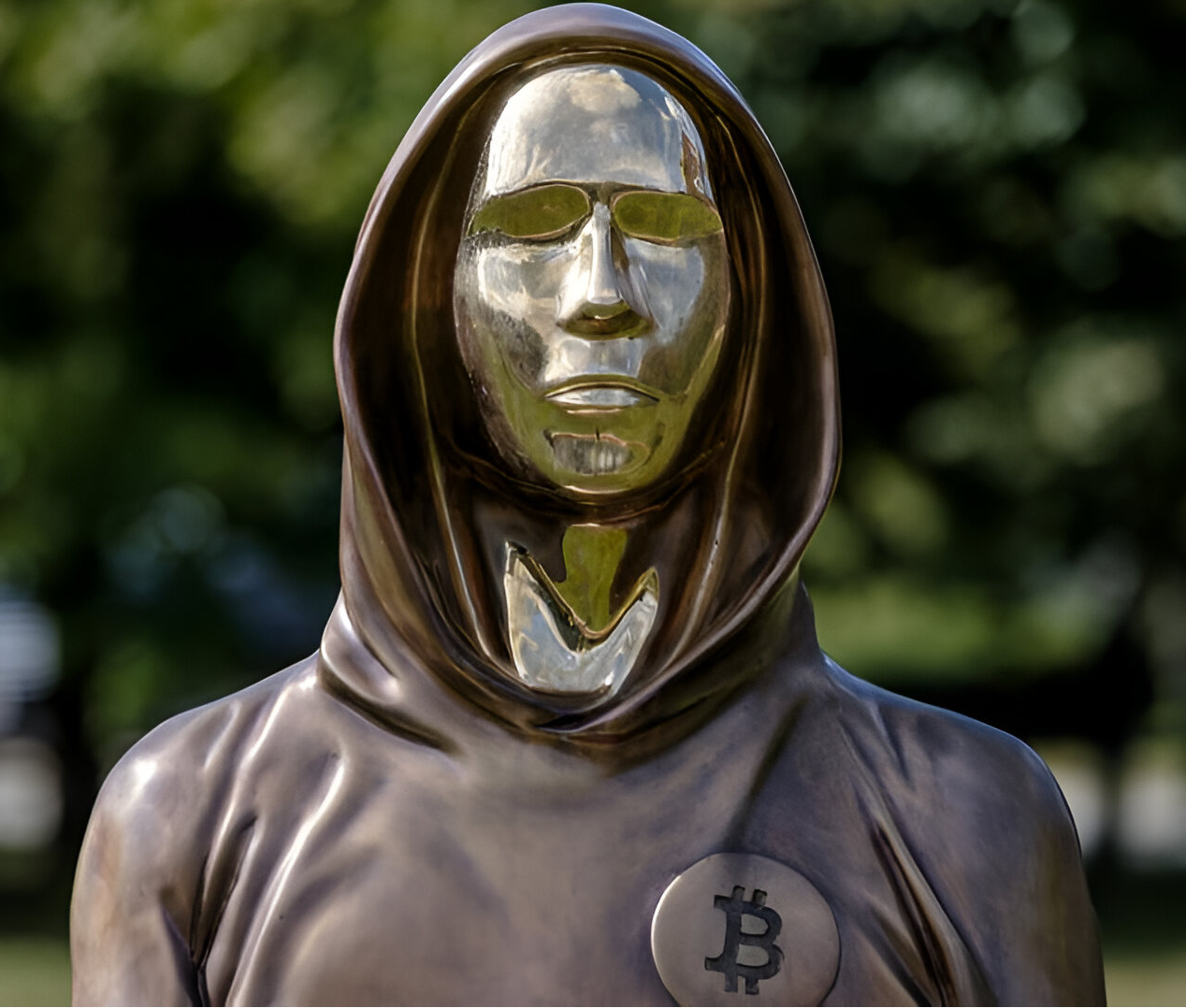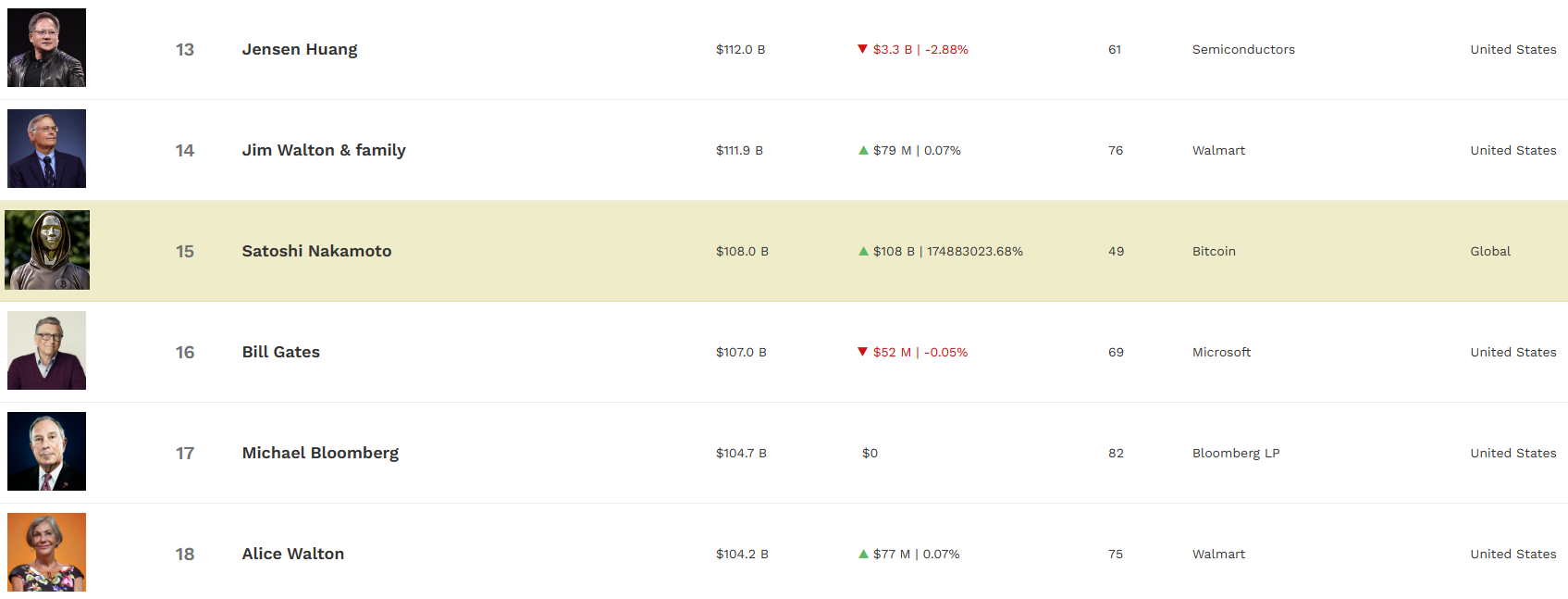Satoshi Nakamoto Surpasses Bill Gates and Michael Bloomberg as 15th Richest Person Worldwide

The mysterious creator of Bitcoin, known only by the pseudonym Satoshi Nakamoto, has now eclipsed some of the world's most renowned billionaires, according to the latest Forbes list. If included, Nakamoto would rank as the 15th richest individual globally, surpassing tech mogul Bill Gates and media magnate Michael Bloomberg. This astonishing rise in wealth is attributed to Nakamoto's presumed possession of approximately 1 million Bitcoins, mined back in 2009 when the cryptocurrency was still in its infancy.
According to Forbes, Bill Gates sits at number 15 at $107 billion, followed by Michael Bloomberg at number 16 at $104 billion. If Forbes were to include Satoshi Nakamoto, who mined 1 million Bitcoin back in 2009, they would both be bumped down and Satoshi would be at number 15 with $108 billion, according to today's Bitcoin price of $108,000.

The Power of Early Adoption
When Satoshi Nakamoto first introduced Bitcoin, the concept of digital currency was met with skepticism and intrigue alike. Few could have predicted that what began as an experiment in secure, peer-to-peer transactions would balloon into a currency with a market cap that rivals that of traditional financial systems. Nakamoto's foresight to mine these Bitcoins at the dawn of the cryptocurrency era has paid dividends far beyond what was once imaginable.
The value of Bitcoin has fluctuated wildly over the years, experiencing peaks that have made millionaires overnight and troughs that have tested the faith of even the most ardent believers. Yet, through all these cycles, the cache of Bitcoins held by Nakamoto has remained untouched, lying dormant in what are believed to be the very first blockchain addresses ever created. This inactivity has fueled endless speculation and debate about Nakamoto's intentions, whereabouts, and even identity.
The notion that a single individual, or perhaps a group under one name, could hold such a significant portion of a currency that has no central authority is both fascinating and a testament to the decentralized nature of Bitcoin. It raises questions about the potential for influence over the market, although the sheer size of the Bitcoin network somewhat mitigates this concern.
What's more intriguing is the philosophical aspect of Nakamoto's wealth. Unlike other billionaires whose wealth is often tied to tangible assets or companies, Nakamoto's fortune exists purely in the digital realm, secured by cryptographic means rather than physical vaults or stock certificates. This scenario challenges traditional notions of wealth, power, and influence in the modern world.
As we continue to watch the unfolding saga of Bitcoin and its creator, one can't help but ponder the future. Will Nakamoto ever move these funds? What would the impact be on the market if they did? Is Satoshi Nakamoto dead? Or will these Bitcoins remain a silent monument to the dawn of the cryptocurrency age, their owner forever an enigma in the annals of financial history?
Regardless of the answers, Satoshi Nakamoto's place on the Forbes list, even if only hypothetical, serves as a stark reminder of the revolutionary potential of blockchain technology and its ability to reshape our understanding of wealth, privacy, and economic power in the digital age.

